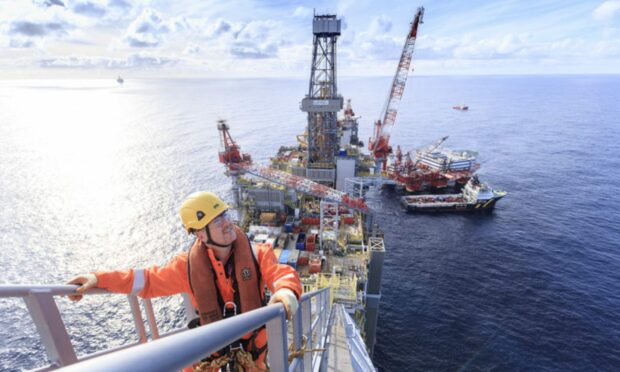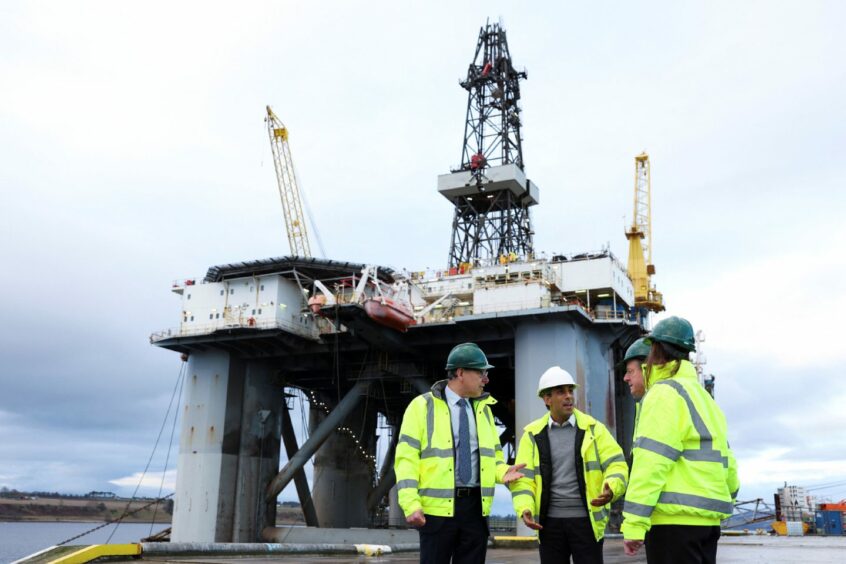Scotland has a proud history in energy production spanning over five decades.
Having transformed into a global hub for oil and gas exploration after the North Sea oilfield, the Forties came online in 1975.
The north-east has been leading the way with new technology and techniques for extracting this vital energy source ever since.
Today there are around 200 companies that operate in the UK and the North Sea, with the industry supporting around 200,000 jobs and adding £17 billion annually to the economy.
And that helps to pay for our public services.
To date, the sector has paid more than £375 billion in production taxes – almost four times the UK-wide education budget each year.
£50 billion taxes
The industry is rightly forecast to pay around £50 billion in taxes over the next five years, which in part is helping to fund vital cost of living support, including the Energy Price Guarantee on household energy bills.
That’s why we welcome the decision by regulators to approve the new Rosebank development, the largest remaining undeveloped oil and gas field in the UK.
According to Equinor’s estimates, this represents a direct investment of about £8.1 billion, of which £6.3 billion is likely to be invested in UK-based businesses.
As one of the sector’s biggest oil and gas investments in the UK, this project will help us grow the economy – one of the Prime Minister’s five priorities – by supporting 1,600 jobs at the height of its construction.
It will also help supply chain companies further anchor their activities in the UK, safeguarding the skills we will need to deliver the transition to net zero.
As the Prime Minister set out last week, we are still committed to reach our net-zero goal by 2050. No G7 country has decarbonised as quickly as us over the past 30 years, so we can be proud of our progress. We need to take the next steps in a way which is pragmatic and proportionate, easing the burdens on working people.
Oil and gas still supplies around three quarters of the UK’s overall energy use today, meaning these fuels will continue to be vital to our national energy security for years to come.
Drive down demand for fossil fuels
While we are working to drive down demand for fossil fuels, there will continue to be UK demand for oil and gas, and we will be net importers of both. The transition to non-fossil forms of energy cannot happen overnight and even when we’re at net-zero we will still need some oil and gas, as recognised by the independent Climate Change Committee.
We’ve always been clear that we want the oil and gas sector to re-invest their profits in the economy, jobs and our energy security, which is why our Energy Profits Levy includes an investment allowance.
Earlier this year we also announced a new Energy Security Investment Mechanism to give investors the confidence needed to keep investing in domestic oil and gas production, supporting investment, jobs and domestic energy supply.
Investment is crucial as it supports exploration of this vast expanse of water to identify potential future resources.
It enables complex and capital-intensive projects to build the required infrastructure to extract resources from new fields.
And it supports vital upgrades to existing projects, to maximise their potential and decarbonise production.
That’s why we’re backing Rosebank and the investment opportunities it brings. Because the UK government is fully behind the people of the north-east – we understand how crucial this industry has been and continues to be for generations of local people.
It’s good for jobs, it’s good for the economy and it’s good for the United Kingdom.




Conversation